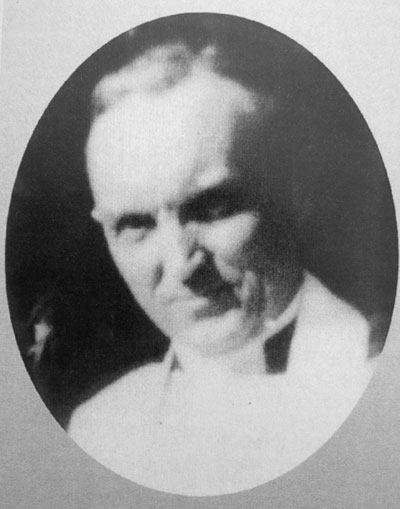 |
|
Rev John Magee, a US Anglican pastor at Deshen Church in Nanjing. [Photo provided to China Daily] |
Silent movie
Fifty-three years later, David Magee received Shao Ziping at his house in New York. After months of searching, Shao had found a way of contacting Magee, the second son of John Magee, a US missionary to China and the chairman of the Nanking Committee of the International Red Cross Organization. The photos published in Life were stills from a 37-minute film that the elder Magee had shot with a 16-millimeter camera.
Because the Japanese had imposed a ban on photos or filming in the street, Magee was unable to catch any scenes of slaughter, but he did capture footage showing severely injured locals being treated at a number of hospitals.
He also filmed the seven deaths in Xia Shuqin's family. Only two of the nine family members survived - Xia Shuqin, then aged 8, and her younger sister. Rabe noted the case in his diaries.
In 1998, Xia's credibility was questioned by two right-wing Japanese scholars. In 2000, she sued the authors for defamation, using Rabe's diaries and Magee's film as evidence. In 2008, Japan's Supreme Court ruled in Xia's favor and she received compensation of more than 315,000 yuan ($50,600).
The silent movie, edited with explanations of each take, was especially effective in the case because John Magee had attended the Tokyo War Crimes Tribunal as a witness of the crimes committed in Nanjing.
For several decades, China and Japan have debated the Nanjing Massacre: about whether it really happened or was a propaganda exercise, about the death toll, about whether local Nationalist soldiers disguised themselves as civilians and killed Japanese soldiers, about whether it was a slaughter of the helpless.
An archive of material - A Collection of Historical Materials Relating to the Nanjing Massacre - now consists of 72 books. "Of course, there are related archives in many countries, so researchers can continue to investigate and uncover new facts. But, what we really need to do is tell the world about the massacre," Yang Shanyou said.
Zhang Lianhong, a researcher at the Nanking Massacre Research Center at Nanjing Normal University, said: "We didn't have much material before Rabe and Vautrin's diaries were found and published, and those debates were generally on a political level instead of an academic one."
"With this evidence, instead of continuing a childish debate about the scale of the massacre, which makes little sense, what we need to do now is to reflect on what happened, why it happened, and find out what the world thinks about it," he said.
